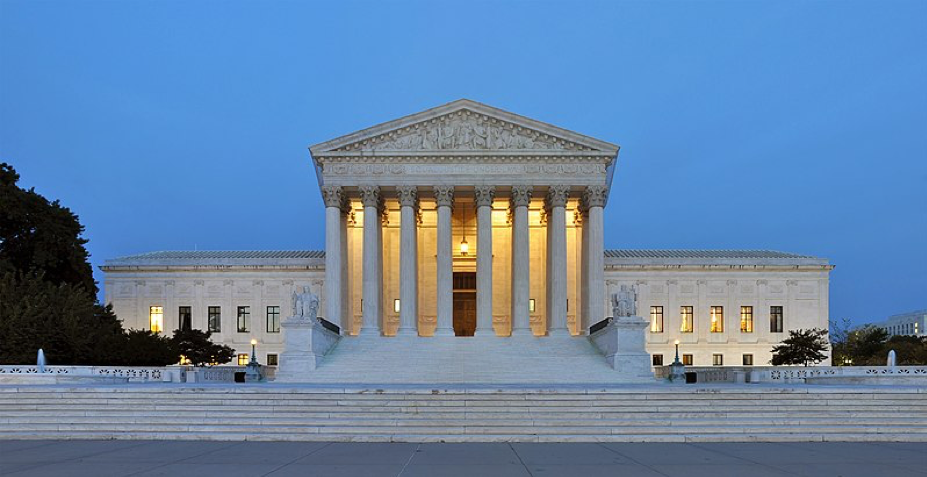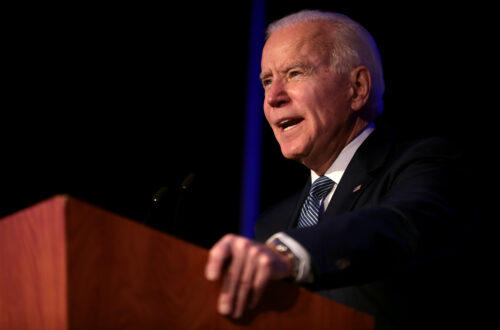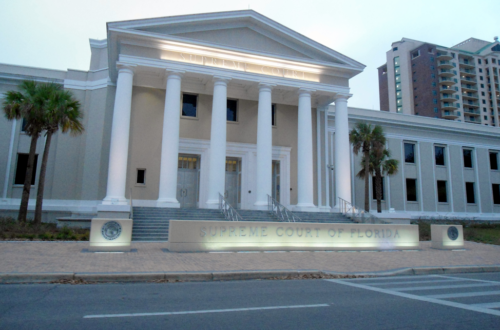With the deadline to register for Florida’s primary election quickly approaching, voting rights groups and civil rights activists asked the Supreme Court to reinstate a district court ruling that temporarily blocked Senate Bill 7066. The bill had required former felons to pay all court fees and costs before getting the right to vote.
Nancy Abudu is the deputy legal director for the Southern Poverty Law Center, one of the many groups representing the ex-felons as the plaintiff in the case.
Abudu recently stated, “We are asking the Supreme Court to maintain the district court’s order which set clear, direct guidelines for the state and counties to follow after months of delay on the state’s part, so that all eligible Floridians can cast a ballot in the 2020 elections.”
The attempt came after the 11th Circuit Court of Appeals put the U.S. District Court’s decision on hold while the full court considered the appeal from Gov. Ron DeSantis, R- Fla.
The decision meant that Florida was not required to move immediately to abolish SB 7066. Such a delay from the courts could limit voter participation in Florida by hindering registration to vote for the upcoming primary on July 20th and for the general election on October 5th.
In the 2018 midterm elections, Florida voted in favor of Amendment 4, which automatically restored the voting rights of felons, excluding those convicted of murder or sexual assault, who have completed of all their sentences. The implementation of Amendment 4 impacted about 1.2 million people in Florida.
Before Amendment 4 passed, Florida had one of the most stringent restrictions regarding ex-felons in the country. It was one of just three states that did not restore voting rights to ex-felons unless there was an approval from a governor-appointed board.
The passing of Amendment 4 did cause controversy, much of which is still ongoing. In June 2019, the Florida legislature passed SB 7066, leading to voting rights groups immediately suing the state. After a year-long legal battle, an eight-day trial in the U.S. District Court of North Florida in Tallahassee ensued.
DeSantis’ lawyers argued that “Regardless of the political trend toward re-enfranchisement, there is nothing unconstitutional about disenfranchising felons—even all felons, even for life,” citing the Supreme Court case Richardson v. Ramirez as an example of why SB 7066 is not unconstitutional.
District Court Judge Robert Hinkle ruled in favor of the plaintiffs, establishing that “A state may disenfranchise felons and impose conditions on their re-enfranchisement. But the conditions must pass constitutional scrutiny. Whatever might be said of a rationally constructed system, this one falls short in substantial respects.”
DeSantis’ lawyers quickly filed an appeal and asked the Circuit court to temporarily suspend the ruling against SB 7066, until the full court heard the entire case.
The request to reinstate the district court’s ruling on SB 7066 went to Justice Clarence Thomas, who fields emergency applications from the 11th Circuit.
On July 16, the Court denied the request to lift the 11th Circuit blocking order on SB 7066. The case proceeds on the merits, but 775,000 ex-felons who have outstanding fines will not be allowed to vote in Florida’s primary election in August.
This case is just one part of the uncertainty over voting rights for ex-felons, but one that has future implications for the 2020 elections and beyond.
Featured image: Featured Image: Panorama of the Supreme Court Building at Dusk (Unmodified photo by Joe Ravi Under Creative Common License 3.0 https://bit.ly/3fqw63m)





